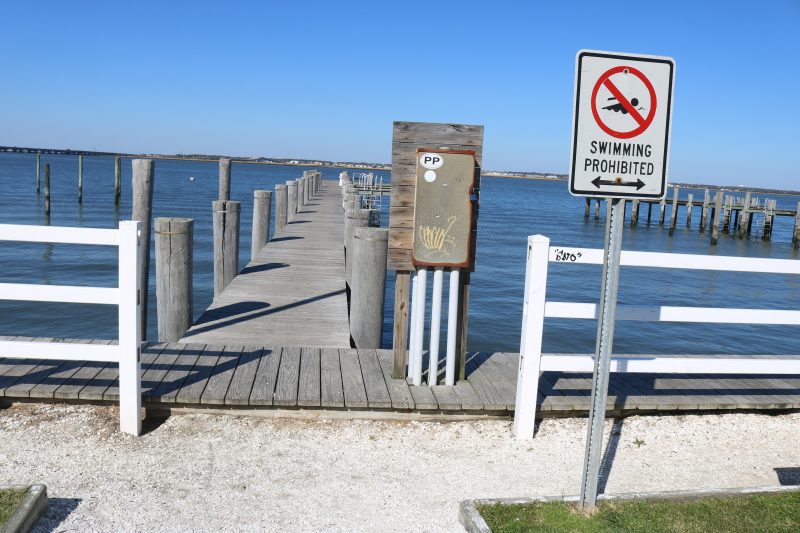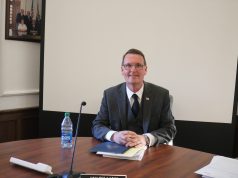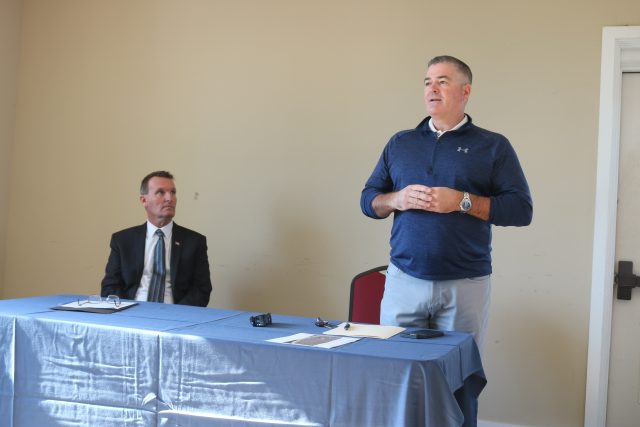
By DONALD WITTKOWSKI
Ocean City may lower the speed limit to just 20 mph on streets throughout the island, Mayor Jay Gillian said Saturday during a community meeting that included complaints from residents about speeding drivers and careless riders on electric bikes.
Gillian told residents during a First Ward meeting organized by Councilman Terry Crowley Jr. that Police Chief Jay Prettyman is in favor of making “all roads in Ocean City 20 miles an hour.”
“Twenty miles an hour, I think that could be a good thing,” Gillian said.
Gillian noted that he plans to discuss lowering the speed limit with City Council to see if the governing body would give its support. Council, as the city’s legislative body, would have to formally approve of the lower speed limit to make it law.
“It’s just a proposal that we want to look at and get some feedback from the public. But yes, it would be for the entire island, not just for certain sections,” Crowley said of a possible 20 mph speed limit in comments after the First Ward meeting.
Hoping to improve safety, Council approved two traffic ordinances in 2021 to lower the speed limit in alleys to 15 mph and install more four-way stop signs at busy intersections. The changes were made at Prettyman’s request.
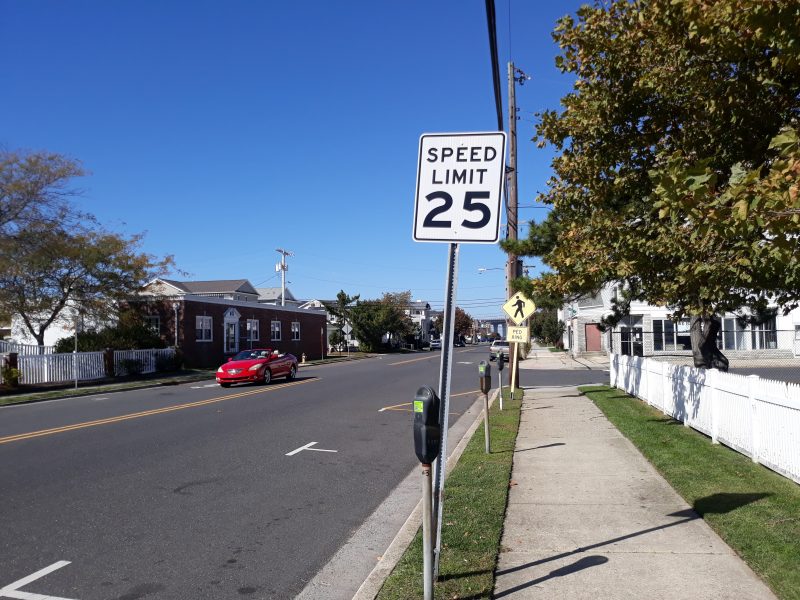
Some streets already have a 20-mph limit, including Haven Avenue between Ninth Street and 36th Street and Haven Avenue between 49th and 56th Street, according to the city traffic codes.
Other city streets have a speed limit of 25 mph or 30 mph.
Still other roads in Ocean City are under the jurisdiction of Cape May County, most notably Bay Avenue, a major north-south corridor running the length of the island.
Several of the more than 40 residents who attended the First Ward meeting at the Ocean City Yacht Club complained to Gillian and Crowley about speeding drivers and electric bike riders.
Susan Cracovaner, who lives in the 100 block of Asbury Avenue, called her part of the street the “Asbury Speedway.”
She said it is common for motorists on Asbury Avenue to drive between 35 mph and 45 mph during the day and “extremely fast” at night. She urged the city to step up the enforcement of speeding laws.
“The best way to educate people is to give them a hard lesson, which is to give them a speeding ticket,” Cracovaner said.
In response to Cracovaner, Gillian said he believes a 20-mph limit would help to reduce the speeding problem.
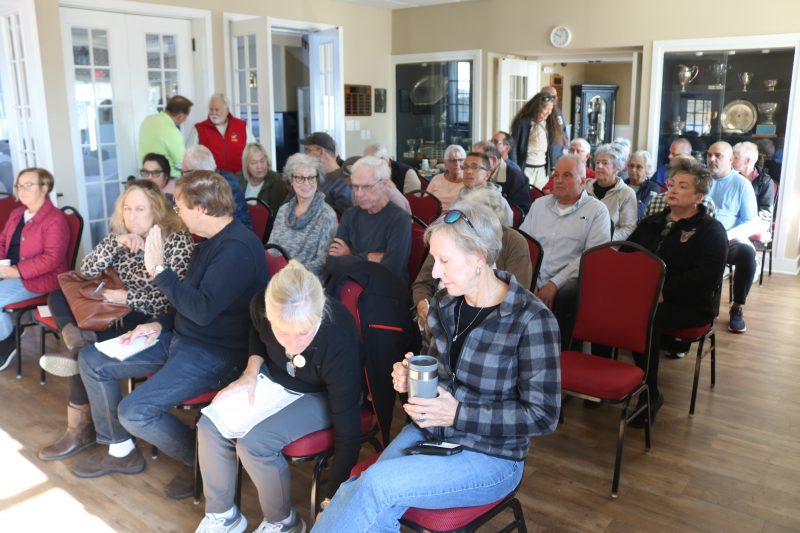
Cracovaner and other residents at the meeting predicted there will be fatal accidents if the speeding continues, especially by young people riding on electric bikes, commonly known as e-bikes.
E-bikes are becoming increasingly popular. They have a battery-powered motor and are capable of hitting speeds of 35 mph or higher, creating a serious potential danger of collisions with pedestrians or motor vehicle traffic on local streets and alleys, residents said.
“It just feels like a tragedy waiting to happen in those alleys,” said Bill Berman, a resident of Seacrest Road.
In 2019, Gov. Phil Murphy signed legislation regulating the use of low-speed e-bikes and motorized scooters in New Jersey.
The legislation stipulates that motorized scooters and e-bikes capable of traveling 20 mph or slower to be regulated much the same as ordinary bicycles, allowing their operation on streets, highways, and bicycle paths in the state, according to a news release by the Governor’s Office.
An operator of a low-speed electric bicycle or motorized scooter is not required to register the scooter or e-bike, furnish proof of insurance, or have a driver’s license. The bill further provides that all statutes, rules, and regulations that apply to ordinary bicycles will apply to low-speed electric bicycles and motorized scooters, the release stated.
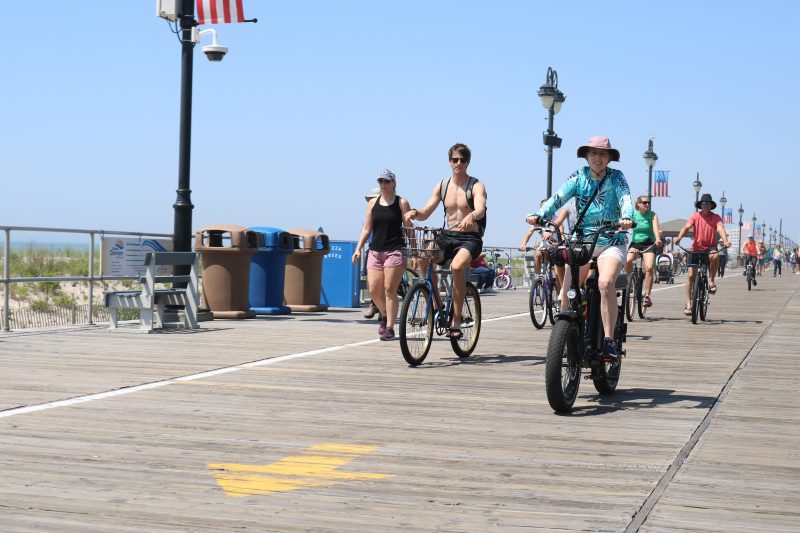
Gillian expressed frustration with the way the state regulates e-bikes. He said the state regulations have restricted the enforcement powers of police departments statewide to stop young e-bike riders from breaking traffic laws.
He said he wants the governor and the state’s attorney general to give communities more help in dealing with unruly teens.
“They’ve got to give our police department the tools,” Gillian said. “Let’s fix the law and stop the kids from doing everything they want.”
Saturday’s First Ward meeting also touched on other topics, including bulkheads, flooding, beach replenishment, improvements to the playgrounds, zoning regulations and parking shortages.
Another issue that dominated the meeting was the Waterfront Park and Marina, commonly known to residents as the “Second Street Park,” on Bay Avenue.
Residents urged Gillian and Crowley to have the city closely supervise the parking spaces, marina docks and the use of the public bathroom at the park to reduce the crowds and congestion during the summer.
Both Gillian and Crowley emphasized that they have been working with the police department to address any problems at the park and to continue overseeing it. They both pledged that more improvements will be made at the park to benefit the neighborhood.
“It’s a beautiful piece of property. It’s the best place on the island to watch the sunsets,” said Crowley, whose Bay Avenue home is located across from the park.
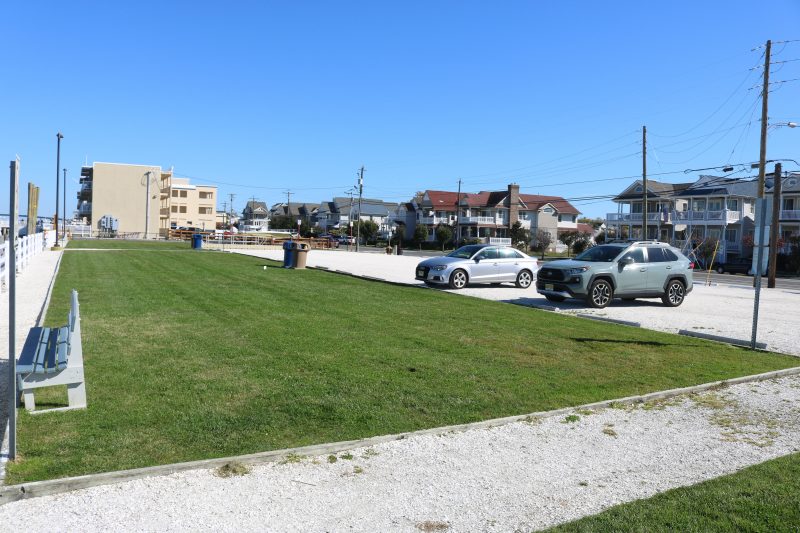
Some of the residents complained that bayfront businesses were monopolizing the parking spaces and making it difficult for other people to enjoy the park.
“Actually, all I want is for the park to remain in its pristine condition,” Kathy Horne, who lives in the 200 block of Bay Avenue, said in an interview after the meeting.
The park was acquired by the city years ago through a Green Acres grant to preserve it for public use. Kayaking, fishing and boating are some of the popular activities.
Over the summer, some of the neighbors complained at a City Council meeting that the park was becoming a hangout for partiers. Loud music, drinking and profanity were some of the problems they described.
Crowley stressed that the problems occurring over the summer are being solved with the help of the police department.
“The Second Street Park is not unique. It is a microcosm of the whole island and society. We’re working with the police to address the problems. Is it perfect? No. But it’s certainly an improvement as we continue to look into it,” he said in an interview after the meeting.
